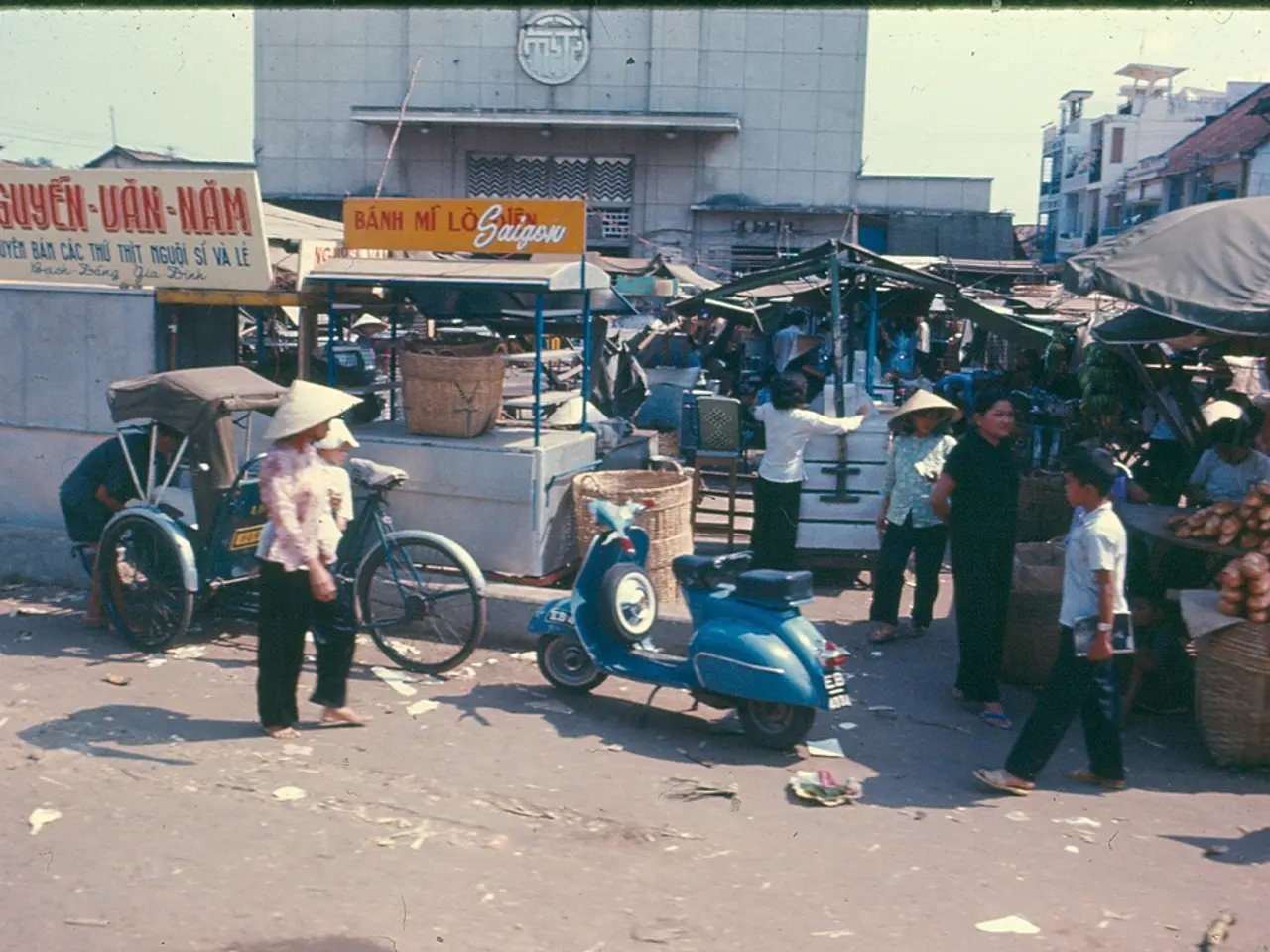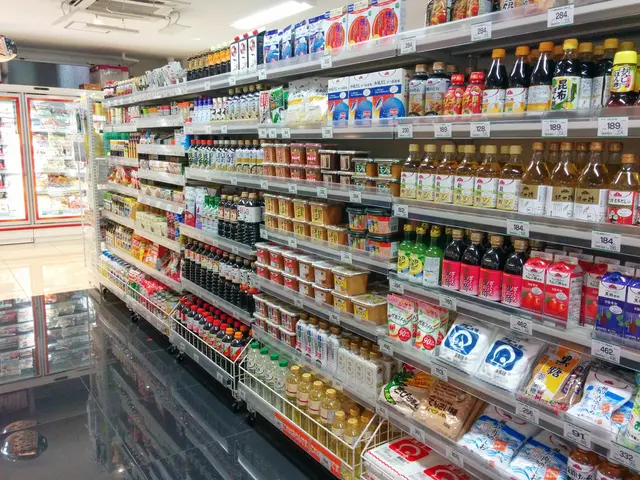Polluted metropolis outlaws single-use plastics, encountering challenges in the process
In a bid to combat plastic pollution, Lagos, Nigeria, implemented a ban on single-use plastics on July 1, 2025. The ban aims to eliminate items like plastic straws, lightweight nylon bags, styrofoam, and plastic cutlery and plates, particularly those below 40 microns thick, as these are major contributors to drainage blockages and pollution.
However, the effectiveness of the ban has been limited due to weak enforcement, lack of viable alternatives, and ongoing usage by residents and vendors despite the legal restrictions.
Enforcement Challenges
Although Lagos State Government officials have been actively enforcing the ban in markets such as Agege and Oniwaya, many shops continue to openly sell banned plastic items. Vendors and consumers still rely heavily on these items, suggesting enforcement is inconsistent and incomplete.
Waste Context
Lagos generates about 2,500 tons of plastic waste daily, much of it single-use plastic that clogs waterways, blocks canals, pollutes beaches, and worsens urban flooding.
Behavioral and Systemic Issues
Experts and sustainability advocates highlight the need for a behavioral change among residents and vendors, as well as better waste sorting and recycling systems. There is also a call for manufacturers to produce more easily recyclable materials to address the plastic waste problem effectively.
Alternatives for Low-Income Vendors
Current reports do not specify widely implemented substitutes available in Lagos markets. However, the Lagos Commissioner for Environment has encouraged embracing reusable alternatives to reduce plastic waste, though the accessibility and affordability of these alternatives for low-income vendors remain a challenge. The lack of affordable and practical replacements is referenced by vendors still relying on banned plastics, indicating an urgent need for:
- Cost-effective reusable or biodegradable packaging materials that vendors can afford.
- Government or NGO-led programs to subsidize or supply alternatives to vulnerable market traders.
- Community education and engagement to encourage adoption of alternatives.
In the Absence of a Proper Waste Management System
In the absence of a proper waste management system, most of Lagos' plastic waste ends up in waterways, clogging canals, polluting beaches, and contributing to devastating floods.
Two women in Obalende, a commercial suburb in Lagos, are scraping labels from plastic soft drink bottles for recycling, selling the recyclable plastic to private waste management companies.
The Effectiveness of the Ban
The effectiveness of the Lagos state government's ban on single-use plastics is limited without strong enforcement, affordable alternatives for low-income vendors, and meaningful improvements in the city's overwhelmed waste management systems.
Experts call for a behavioral change among Lagos residents for the law banning single-use plastics to be effective. The competition among private waste managers and sustainability groups in Lagos has become tougher as more people join the work. Plastics are made from fossil fuels like oil and gas, making their reduction a crucial step towards environmental protection.
[1] Lagos state government press release on single-use plastic ban [2] Report on the effectiveness of Lagos' single-use plastic ban [3] Interview with Omoh Alokwe, co-founder of the Street Waste Company [4] Article on the impact of single-use plastics on Lagos' drainage systems [5] Op-ed on the need for behavioral change in Lagos to combat plastic pollution
- The government's initiative to ban single-use plastics in Lagos faces challenges in enforcement, particularly in markets like Agege and Oniwaya, where shops continue to sell banned items.
- The excessive production of plastic waste in Lagos, much of it single-use, leads to pollution of waterways, canals, and beaches, contributing to urban flooding.
- To tackle the issue of plastic waste effectively, experts and advocates emphasize the need for behavioral change among residents, improved waste sorting and recycling systems, and the production of easily recyclable materials by manufacturers.
- The lack of affordable and practical alternatives to banned plastics poses a significant challenge for low-income vendors, who continue to rely on these items despite legal restrictions.
- To address this challenge, there is a demand for cost-effective reusable or biodegradable packaging materials, as well as government or NGO-led programs to subsidize or supply alternatives to vulnerable market traders.
- In the absence of an effective waste management system, the ban on single-use plastics in Lagos may not yield desired results without strong enforcement, affordable alternatives for low-income vendors, and improvements in the city's overwhelmed waste management infrastructure.




